Let’s All Talk About Guns
Rep’s “American Song” offers strong one-man show on the topic followed by second act of community discussion.
American Song is not to be confused with Sirens of Song, which opens later this month around the corner at the Stackner Cabaret. No, think more of the melancholy Bach cello and the rear projection clouds that open American Song, a world premiere through April 10 at the Milwaukee Rep’s Quadracci Powerhouse main stage.
Think even harder about the universal harmony imagined in the “I Hear America Singing” refrain from Walt Whitman’s classic ode, “Leaves of Grass,” and why Andy – the broken father reconstructing his life piece by piece as he builds a stone wall onstage — is convinced America will never hear that refrain again. Not just him. All of America whose song has been shattered by gunfire.
The physicality and conversational intensity of James DeVita make the event mesmerizing, sardonic and touching — which will be no surprise to those who have witnessed the actor’s power in such past Rep one-man portrayals as The Iliad in 2014.
Australian playwright Joanna Murray-Smith has built a mature if familiar framework — a recognizable portrait of a middle class dreamer ruminating in a lonely field as he builds stone by stone a multilayered extension of his state of mind (and how smart, knowing DeVita’s muscularity so well, that scenic designer Daniel Conway has created a space the actor can touch, haul around and make us feel).
As we sit rapt, DeVita’s Andy paints his own youth, his devotion and presence for his wife and child despite the almost inevitable fictional device of a sexual affair in middle age. This is a good man – ordinary except for his honesty — suddenly faced with that inexplicable moment when a beloved son emerges not as the victim but the perpetrator of mass tragedy.
It is a worthy topic that DeVita puts flesh on — muscular flesh, intense conversational details, kinetic connections of human tissue that an actor can pull out of predictable dialog. And how can it not be predictable when the aim is to concoct a believable Everyman? It is a comforting human portrait until all complacency is exploded.
After World War II, most returning veterans could not talk about their experiences. Similarly today, most parents and grandparents have contemplated in flashes what it might feel like if a loved one was subject to such teenage violence, must less an unexpected creator of it. But they don’t talk about it. The production hopes to use theater to give voice and focus to those concerns.
To that end, presentational sideshows have been put in operation. The Rep is extending the 80 minute length of Act I with a communal Act II. Every night a different five-minute viewpoint will be offered by a civic leader (opening night was Darienne Driver, superintendent of Milwaukee Public Schools). Then, audience members can choose to participate in a sit-down with fellow patrons to discuss violence, guns and youth in our society.
None can dispute the issue is crucial and that theater can lend powerful insight, just as Rep’s Amish Project at the Stiemke Theater did last year. That was another illuminating one-person show, in that case acted by Deborah Staples, and also seeking to capture both horror and the redemption. It didn’t just concoct an incident as American Song does, but fictionalized within an actual mass killing.
So let’s not pretend this is a new subject for playwrights, though it continues its grip in a society that seems bollixed about how to respond. The progression within the piece is vivid, discussion should naturally flow, but the illumination stems mainly from the artistry of DeVita.
Dominique Paul Noth served for decades as film and drama critic, later senior editor for features at the Milwaukee Journal. You can find his blog here and here.
American Song Gallery
Review
-
Eating Burmese in Bay View
 Dec 13th, 2025 by Cari Taylor-Carlson
Dec 13th, 2025 by Cari Taylor-Carlson
-
Casablanca Is a Milwaukee Success
 Nov 30th, 2025 by Cari Taylor-Carlson
Nov 30th, 2025 by Cari Taylor-Carlson
-
Oh, Those Witty 18th Century Brits
 Nov 24th, 2025 by Dominique Paul Noth
Nov 24th, 2025 by Dominique Paul Noth
Theater
-
Oh, Those Witty 18th Century Brits
 Nov 24th, 2025 by Dominique Paul Noth
Nov 24th, 2025 by Dominique Paul Noth
-
Skylight’s Holiday Show Is Lots of Fun
 Nov 16th, 2025 by Dominique Paul Noth
Nov 16th, 2025 by Dominique Paul Noth
-
Rep’s ‘Come From Away’ Is a Triumph
 Nov 10th, 2025 by Dominique Paul Noth
Nov 10th, 2025 by Dominique Paul Noth

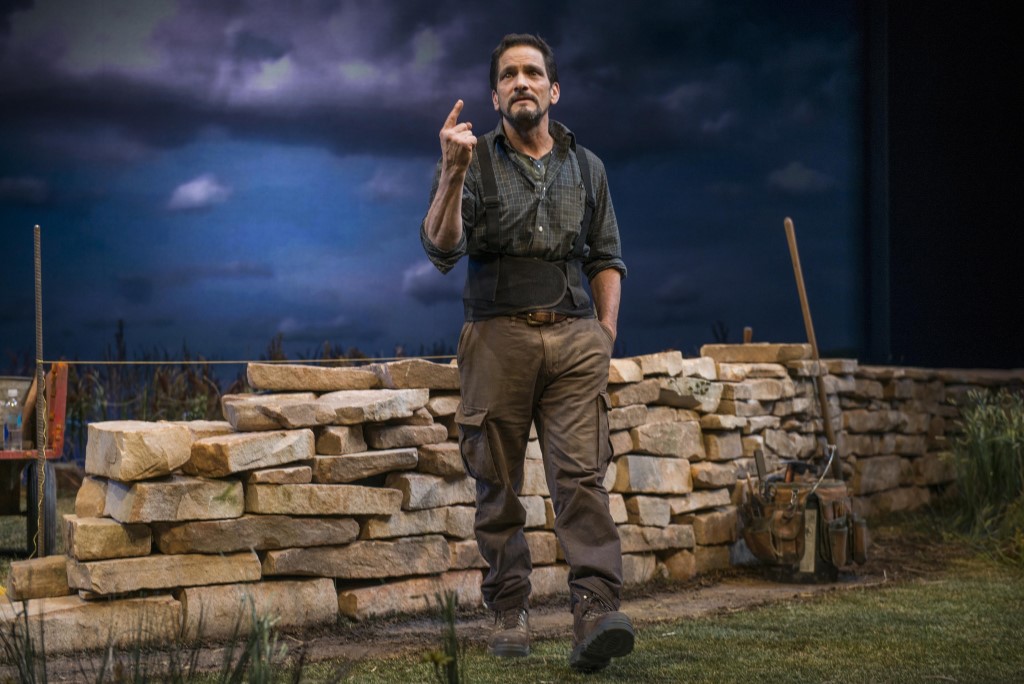
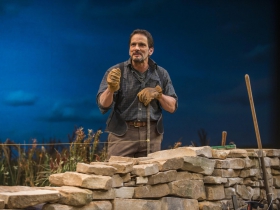

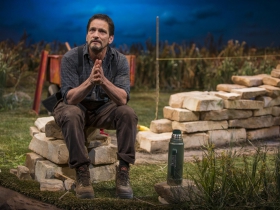
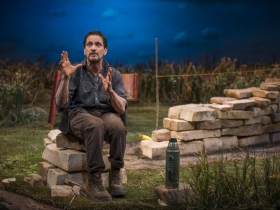
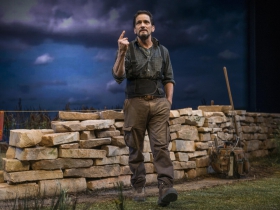


















To have a son who’s “the perpetrator of mass tragedy” – what a dilemma! Do we actually know the members of our families, or our friends?